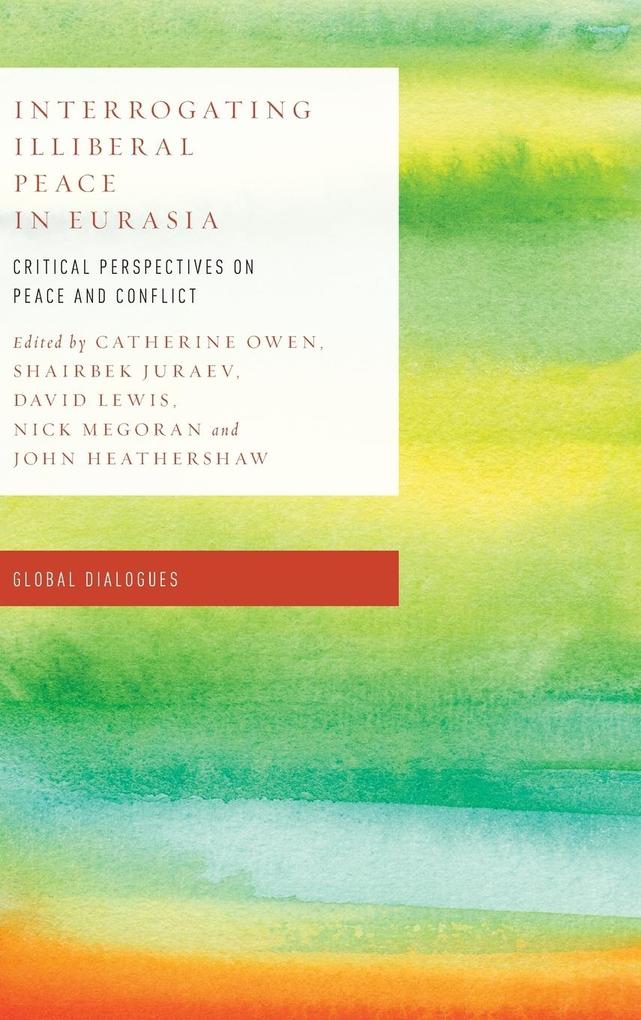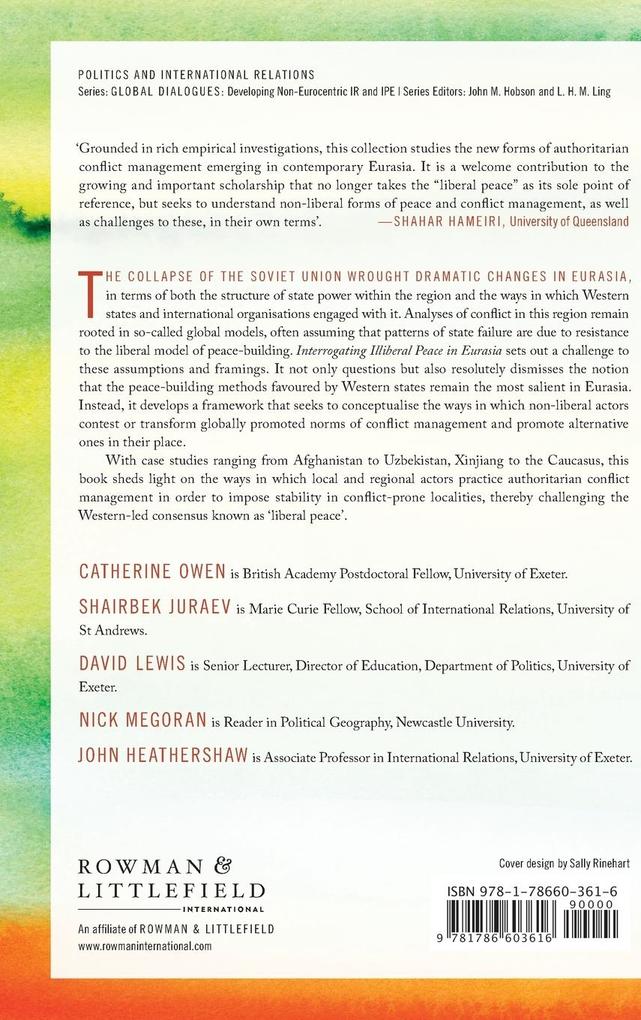
Zustellung: Sa, 14.06. - Mi, 18.06.
Versand in 1-2 Wochen
VersandkostenfreiBestellen & in Filiale abholen:
Draws together analyses of new approaches to peacebuilding and conflict resolution in a politically turbulent region and offers students and researchers an in-depth and theoretically guided empirical analyses of post-Western and decolonial approaches to peacebuilding in Eurasia.
Inhaltsverzeichnis
Introduction, Catherine Owen et al / 1. History, Memory and the Quest for Conflict Resolution in Ferghana Valley, Jeff Sahadeo / 2. China's Approach to Countering Religious Extremism among Uyghurs in Xingjang, Adam Jones / 3. Women and Literature in Azerbaijan: Creative Literacy as an Asset Model of Peace-Building, Alison Mandaville / 4. A Negative Post-Liberal Peace? Probing the Implications of Peacebuilding Discourses and Practices in Central Asia, Philipp Lottholz / 5. "Everyday Peace" in Jabbor Rasulov, Tajikistan: Local Social Order and Possibilities for a Local Turn in Peace Building, Khushbakht Hojiev and Anna Kreikemeyer / 6. Nation-Building in Central Asia: Towards a New Ethnic Policy, Valeriy Khan / 7. Clashes of Universalisms: Xinjiang, tianxia and Changing World Order in 19th Century, Zhiguang Yin / 8. Spatial Security during Ethnic Riots in Osh, Joldon Kutmanaliev / 9. Bottom-up Peacekeeping in Southern Kyrgyzstan, Alisher Khamidov & Nick Megoran / 10. Conflict Management, Extractive Industries, and the 2014 International Military Exit Strategy in Afghanistan, Timor Sharan and Srinjoy Bose/ 11. Positive Incentives to Stop Insurgency? Russian Conciliatory Tactics in the North Caucasus, Elena Zhirukhina / Bibliography / Index
Mehr aus dieser Reihe
Produktdetails
Erscheinungsdatum
16. Januar 2018
Sprache
englisch
Seitenanzahl
326
Reihe
Global Dialogues: Non Eurocentric Visions of the Global
Herausgegeben von
Catherine Owen, Shairbek Juraev, David Lewis
Verlag/Hersteller
Produktart
gebunden
Gewicht
681 g
Größe (L/B/H)
235/157/24 mm
ISBN
9781786603616
Entdecken Sie mehr
Bewertungen
0 Bewertungen
Es wurden noch keine Bewertungen abgegeben. Schreiben Sie die erste Bewertung zu "Interrogating Illiberal Peace in Eurasia" und helfen Sie damit anderen bei der Kaufentscheidung.















